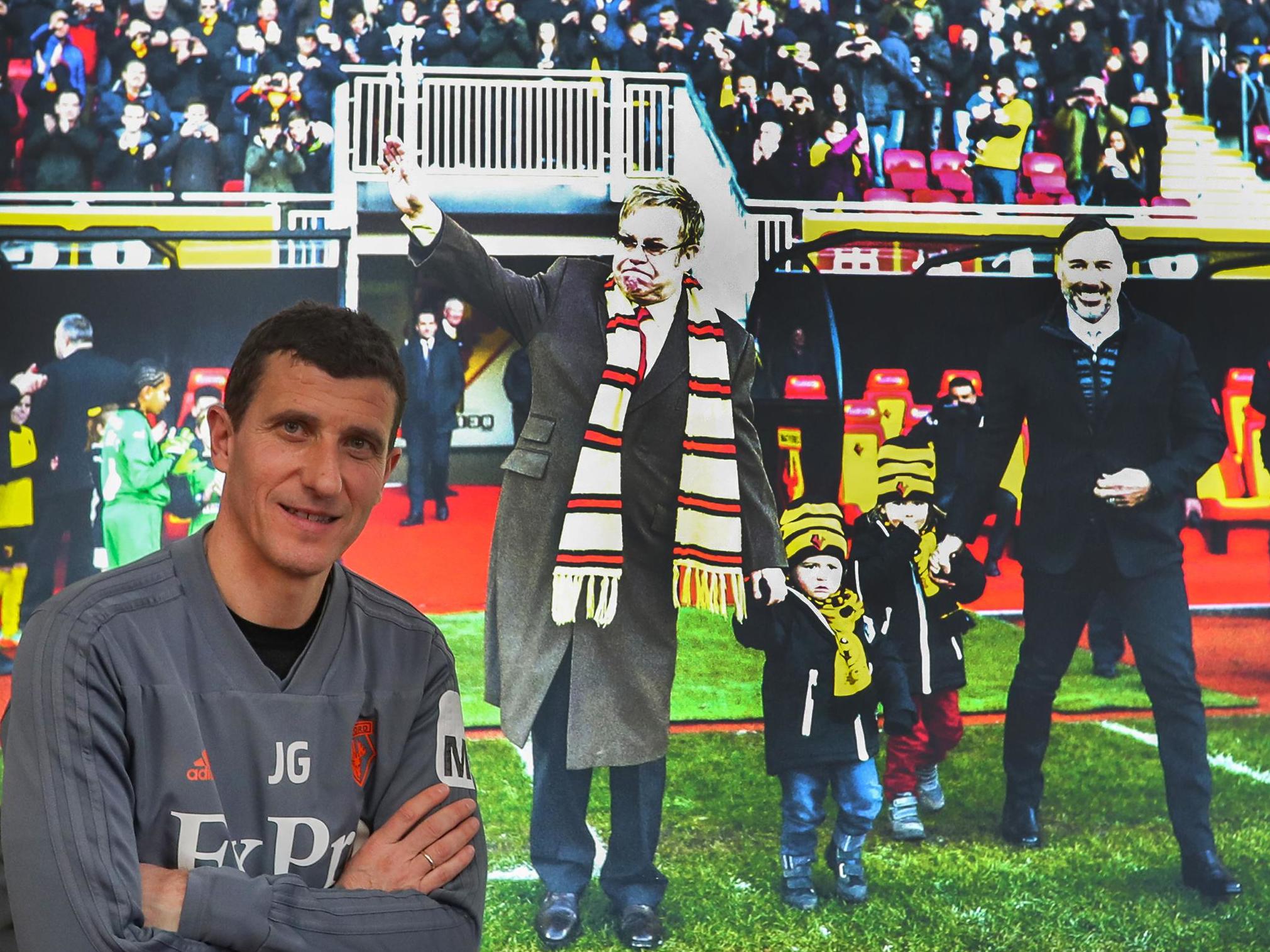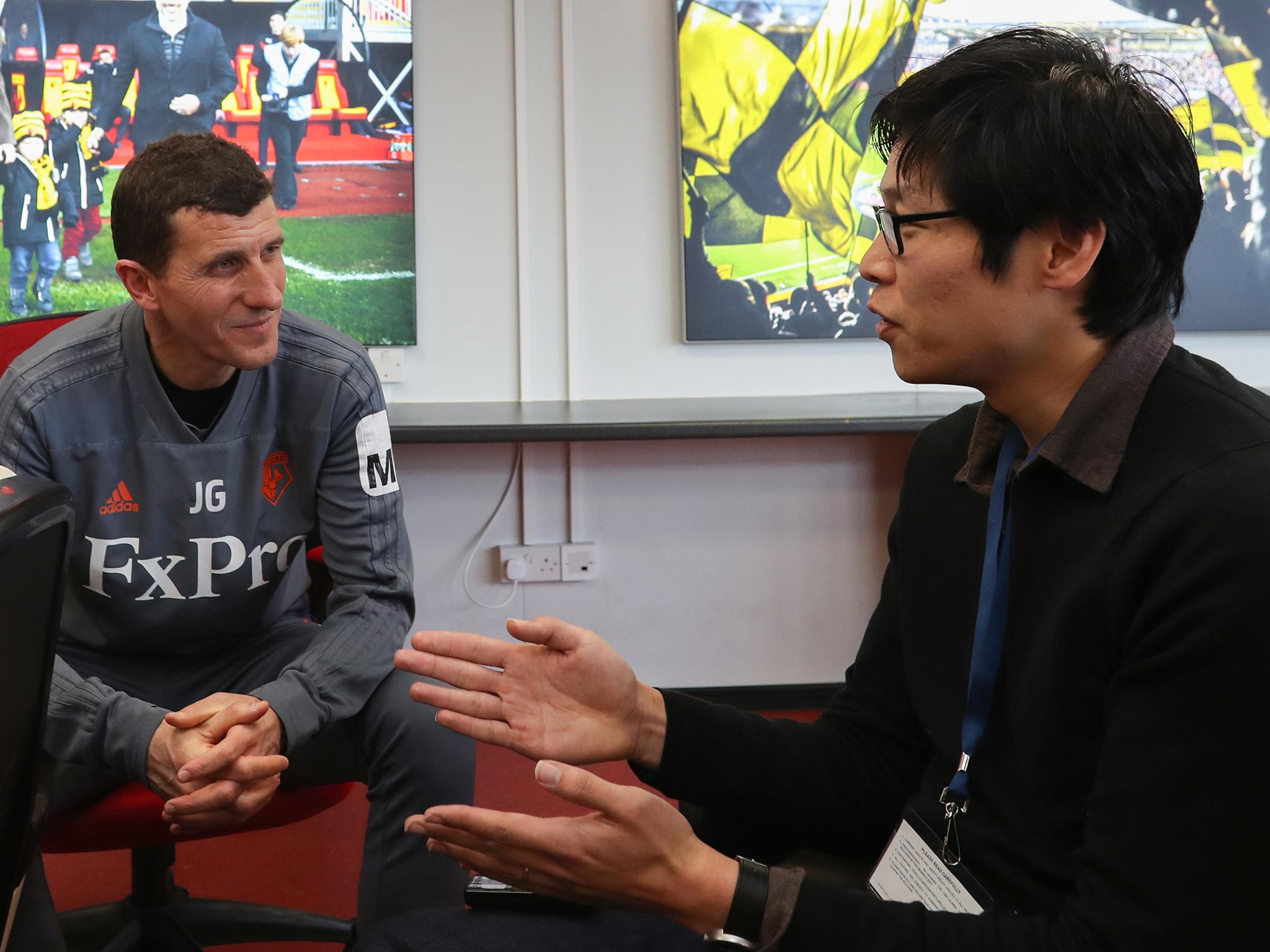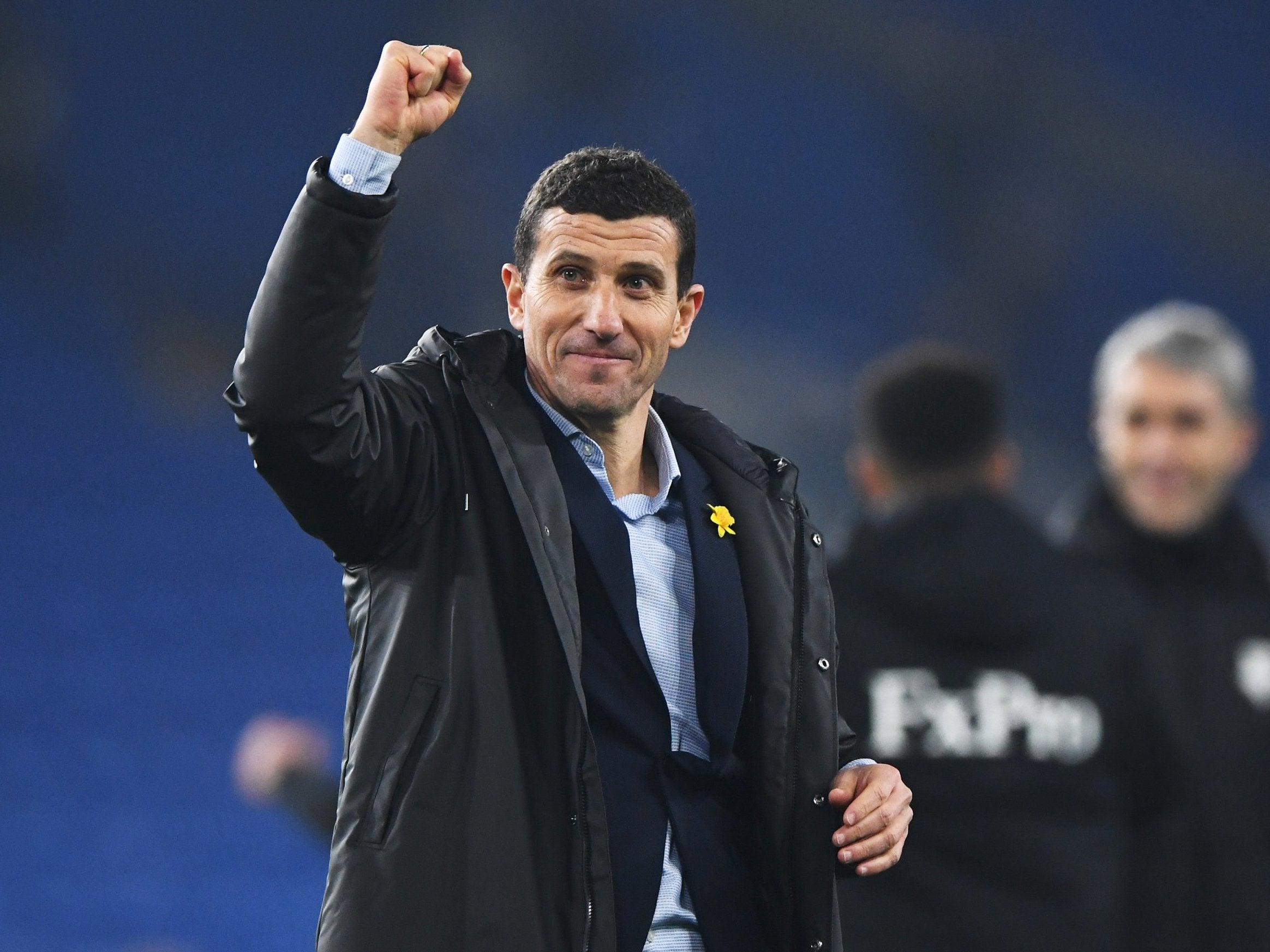Watford vs Crystal Palace: ‘We have values other clubs don’t have. We are a family. We have solidarity’ - the Javi Gracia interview
Interview: Jonathan Liew meets the Watford manager who has ducked the trend of their rotating door policy and replaced it with four key principles: loyalty, honesty, integrity and unity

Your support helps us to tell the story
From reproductive rights to climate change to Big Tech, The Independent is on the ground when the story is developing. Whether it's investigating the financials of Elon Musk's pro-Trump PAC or producing our latest documentary, 'The A Word', which shines a light on the American women fighting for reproductive rights, we know how important it is to parse out the facts from the messaging.
At such a critical moment in US history, we need reporters on the ground. Your donation allows us to keep sending journalists to speak to both sides of the story.
The Independent is trusted by Americans across the entire political spectrum. And unlike many other quality news outlets, we choose not to lock Americans out of our reporting and analysis with paywalls. We believe quality journalism should be available to everyone, paid for by those who can afford it.
Your support makes all the difference.In the summer of 2013, a small provincial club called Almeria, on the Andalucian coast of Spain, were promoted to La Liga for only the second time in their history. It was a jubilant, game-changing moment: not just for Almeria, but for their highly-rated young manager Javi Gracia, who after almost a decade in the game was on the cusp of getting his first crack at the big time. “I’d never trained in the first division,” he says. “It was a chance for me.”
At which point, Gracia did something surprising. He quit.
In order to understand why Gracia quit, spurning the chance to manage in one of the world’s biggest leagues, you need to understand a little about what motivates him. It’s almost six years on, and life is good. As he sits in a simple grey tracksuit at Watford’s Bell Lane training ground, his team sit eighth in the Premier League, which would be their highest finish for 36 years. European football next season is a distinct possibility, whether through the league or through the FA Cup, in which they play Crystal Palace at home in the quarter-finals on Saturday.
All in all, it’s been a resoundingly successful season. But in a strange way, Gracia is proud not so much for what he has achieved on the pitch, but what he has built off it. At a club that in recent years has been a byword for upheaval and flux, Gracia has managed to engineer what club veterans believe is one of the most harmonious, tight-knit squads in recent years. They always say that to take the true temperature of a football club, don’t look at the guys who are playing, look at the ones who aren’t. And the relative quiescence behind the scenes, even among those currently out of the first-team picture, offers the truest insight into a club being run on Gracia’s core principles: loyalty, honesty, integrity and unity.
Family is a theme to which Gracia keeps returning. His parents were teachers in the northern Spanish town of Pamplona, and he sees similarities between their work and his. “A coach is like a teacher,” he says. “Our values come from our family, our parents, the people around you. All of us have principles. I prefer to be loyal with the people around me. The most important thing for me is that people trust you, that they are happy with you.”
This, ultimately, is why he walked out on Almeria in 2013, a week after getting them promoted. During a meeting with the president, Gracia listened with horror as he was informed of the club’s summer plans: to gut the existing squad, and replace them with a whole raft of new signings that would equip them for the rigours of La Liga. Gracia saw it differently. He saw it as a wholesale betrayal of his family: the players who had won promotion, who had run and fought and won with him over the last ten months. He wouldn’t countenance it. So he walked.
“It was very difficult for me,” he admits now. “But after listening to the plan for the next season, I preferred to say no. To wait for another job. Because I didn’t agree with the things he was saying.”
It wasn’t the first time Gracia surprisingly quit a club had because he felt the ambience wasn’t quite right. In 2008, at his very first senior job at third-tier Ponte Vedra, he walked out after two consecutive missed promotions, despite the fans and the board pleading with him to stay. He simply didn’t feel he deserved the job. “It was tough!” he chuckles now. “The president was crying in the last press conference when he told journalists about my departure. But it was better for everybody for me to go.”
And perhaps surprisingly, for a manager who has seen ten different clubs in four different countries over 12 years, Gracia is suspicious of quick fixes and short-term solutions, cognisant of the difficulties of team-building in a sport - and a world, perhaps - geared ever more ruthlessly towards the individual.
“Life is this way,” he concedes. “Everybody wants to achieve something individually. Everyone wants to finish quickly; to achieve results” - and here he snaps his fingers - “now. We know our job. First of all, you need to get good results if you want to continue working in the same place. But to achieve results is not enough.

“In my opinion, the most important thing is to play well, to create a style. The question is if you have enough time to do it. You have to find the balance between the results and the style, create something consistent to compete with - in our case - other clubs stronger than us. But I think we have values other clubs maybe don’t have. We are a family. We have solidarity, we have strength other clubs don’t have. And we have to take advantage of our virtues.”
Just 14 months into the job - a term that already makes him the ninth longest-serving Premier League manager - Gracia has already left his mark. Empowerment and discipline go hand in hand: the squad eat their meals together, and phones are banned at the dining table. Stiff fines are imposed for lateness. “It’s not different than other teams, believe me,” Gracia insists. “I would like to say one day: no more fines. But I think all groups where people are living together need to have rules. It’s only to respect each other.”
A marked difference, in other words, from his last job managing Rubin Kazan in the Russian Premier League. “Sixteen different nationalities in a country where the language was a problem,” he remembers ruefully. “Russian players don’t speak English. You needed three or four translators every day, for every message. Here in Watford, all the players speak in English.”

At Watford, they describe Gracia as a “chameleon” - sensitive and adaptive to individuals, taking the time to gauge people’s characters and treating them accordingly. And indeed, over the months the club hierarchy have been pleasantly surprised by the long-term impact of a coach who, while highly rated and deeply respected at the time of his appointment, was still just one of several options considered to replace Marco Silva, and hired as much for his immediate availability as anything else.
His work ethic is prodigious: Gracia arrives at the training ground at 7am every morning, often staying until 7.30pm. And as the conversation moves on to his life away from the touchline, he admits that the strain of management does not disappear when he closes his front door at night. “No, no,” he says. “Football is always in my life. You have to feel something special for football. You have to have the passion. You have to find a balance, but in this case football is something that is in your mind. And it’s difficult to disconnect when you arrive home.”
In his rare spare moments, however, he tries to embrace English life. He lives just outside St Albans, and when he has a day off he enjoys going for walks with his family through the Hertfordshire countryside. Occasionally he’ll come across a Watford fan on his wanderings, an encounter that rarely fails to inspire him. “I like to be with our supporters,” he says. “In the end, we are working to make them feel proud of us. And to speak with them, when they tell you they are enjoying the season, is something amazing for us.”

The FA Cup offers Gracia a chance to pick up the first major silverware of both his career, and the first major trophy in Watford's history. And while he grants that a day out at Wembley would be a memorable moment for the club, he insists: “I don’t think success only depends on trophies. Trophies maybe open the eyes for a lot of people. But in my opinion, there are very good coaches without trophies.”
So if silverware won’t define him, and results don’t obsess him, and new signings don’t float his boat, then it’s worth asking: what, exactly, does Javi Gracia strive for? What fulfils him? How does he conceive of happiness in a footballing sense? His answer somehow manages to be breathtakingly simple, and rather touching.
“In this moment,” he replies, “it’s the feeling I have in this club. To be part of something, to belong. To be here, with the players I have, and with this atmosphere. That’s something that makes me happy every day.”
Join our commenting forum
Join thought-provoking conversations, follow other Independent readers and see their replies
Comments